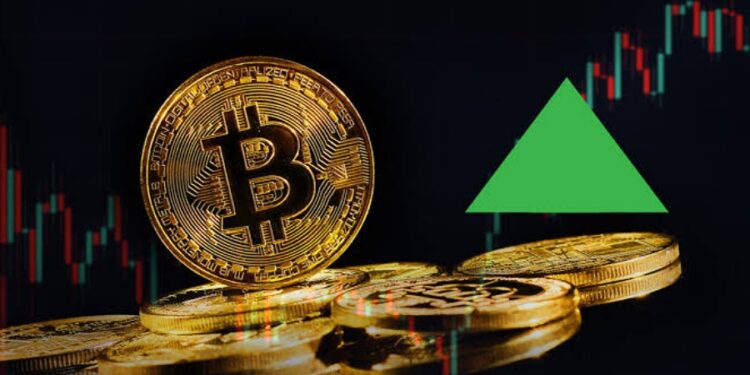Bitcoin daily transactions are done by one in five Nigerians. This is according to Elastos.
In its latest report, the renowned open-source blockchain platform stated that a significant proportion of Nigerians, precisely 20% or one in every five individuals, engage in Bitcoin daily transactions.
The research was gathered from online interviews conducted with 1,407 individuals who identified themselves as ‘tech savvy’ in Brazil, Germany, Nigeria, South Korea, UAE, the UK, and the US, as stated by the platform.
According to the report, conducted by an independent market research firm, the interviews were conducted from March 30th to April 4th, 2024.
READ ALSO: LemFi Suspends Ghana Operations, Here’s Why
Furthermore, the report highlights that a significant 67 percent of Nigerians express greater confidence in Bitcoin as a safeguard for their life savings compared to conventional institutions like banks, local governments, and even cash.
It read, “The inaugural BIT Index (Bitcoin; Innovation & Trust) – compiled from over 1,400 self-defined ‘tech savvy’ respondents from 7 countries across the globe – sheds light on the actual perception and use of Bitcoin in people’s daily lives, irrespective of its current valuation. Elastos’ BIT Index is part of ongoing research to better track the ‘real world’ use of Bitcoin together with users’ motivations, expectations, and barriers around the same.
“In particular, the data reveals the role being played by emerging markets in terms of understanding, usage, and confidence around Bitcoin. Nigerian respondents’ levels of usage and trust compare starkly with those expressed from so-called ‘established’ markets such as Germany and the UK and Germany where daily usage levels are just 8% (for German respondents) and (9% for their UK counterparts).
“In terms of the trust – in addition to Nigeria – significant proportions of respondents from Brazil (35 percent) and the UAE (32 percent) would have more confidence in Bitcoin-based services to protect their life savings compared to those from markets such as the UK (20 percent) and Germany (22 percent).
“When it comes to ensuring the integrity of online transactions, emerging market respondents also revealed their relative confidence in Bitcoin, compared to alternatives. According to the data, 66 percent of Nigerian respondents and 35 percent from Brazil have more confidence in Bitcoin-based systems than alternatives such as banks, or national Governments, compared to figures of just 16 percent (Germany) and 21 percent (UK) who feel the same.”
Meanwhile, Jonathan Hargreaves, Elastos’ Global Head of Business Development & ESG, characterized the initial discoveries of the BIT Index as a reflection of the involvement of the ‘global south’ in embracing decentralized currencies like Bitcoin.
“The BIT Index offers a fascinating and sobering insight into the industry. The fact that over two-thirds of Nigerian consumers and a third of their counterparts from the UAE and Brazil would feel more confident entrusting their life savings in Bitcoin than traditional financial instruments speaks volumes about the protagonism these regions are already playing. In many instances, the driving factor is the absence of viable – accessible – alternatives to, for instance, conduct cross-border transactions or mitigate the impact of inflation,” he said.
CBN distances self from limiting Bitcoin daily transactions in Nigeria
The Central Bank of Nigeria refuted claims of issuing a directive instructing regulated financial institutions in the nation to identify individuals or entities engaging in transactions with Bybit, KuCoin, OKX, and Binance.
Meanwhile, the Central Bank of Nigeria (CBN) said the information contained in the circular did not originate from it, claiming it is “fake content.” People familiar with the matter stated that backtracking on unpopular policies was not uncommon in the region.
Per the trending circular, the CBN ordered financial institutions in the country to identify individuals or entities transacting with these exchanges and implement a six-month Post No Debit (PND) instruction on their accounts.
According to the bank, the mentioned platforms are not licensed to operate in Nigeria and are currently under investigation. It added that defaulters of this directive would be faced with severe regulatory sanctions.
The bank also warned that any trader “buying and selling USDT illegally” would be arrested.
The CBN further reminded regulated financial entities in the country that they were barred from dealing in cryptocurrencies or facilitating payments for crypto exchanges.
Over 300 P2P Accounts Frozen
During a recent media briefing, Ola Olukayode, the chairman of the Economic and Financial Crimes Commission (EFFC), highlighted that activities on peer-to-peer platforms such as KuCoin were worsening the foreign exchange difficulties faced by the nation.
He said the anti-graft agency had frozen about 300 suspected illegal forex accounts trading on P2P platforms. Notably, over $15 billion passed through one of these platforms in the last year.
This development comes as the Nigerian government has adopted a stringent stance towards crypto to stabilize the foreign exchange market. Initially, the authorities attributed the Nigerian Naira’s weak value against the US Dollar to currency traders’ speculative activities on the crypto exchange Binance.
The exchange has denied these allegations but is still facing trial, alongside two of its executives, for tax evasion and money laundering.
Binance said it is cooperating with the authorities and called for the release of its detained employees.










